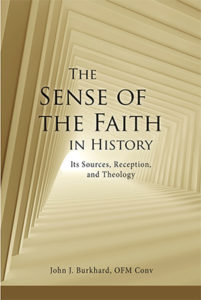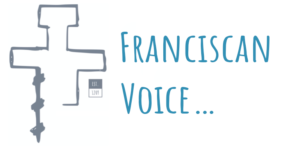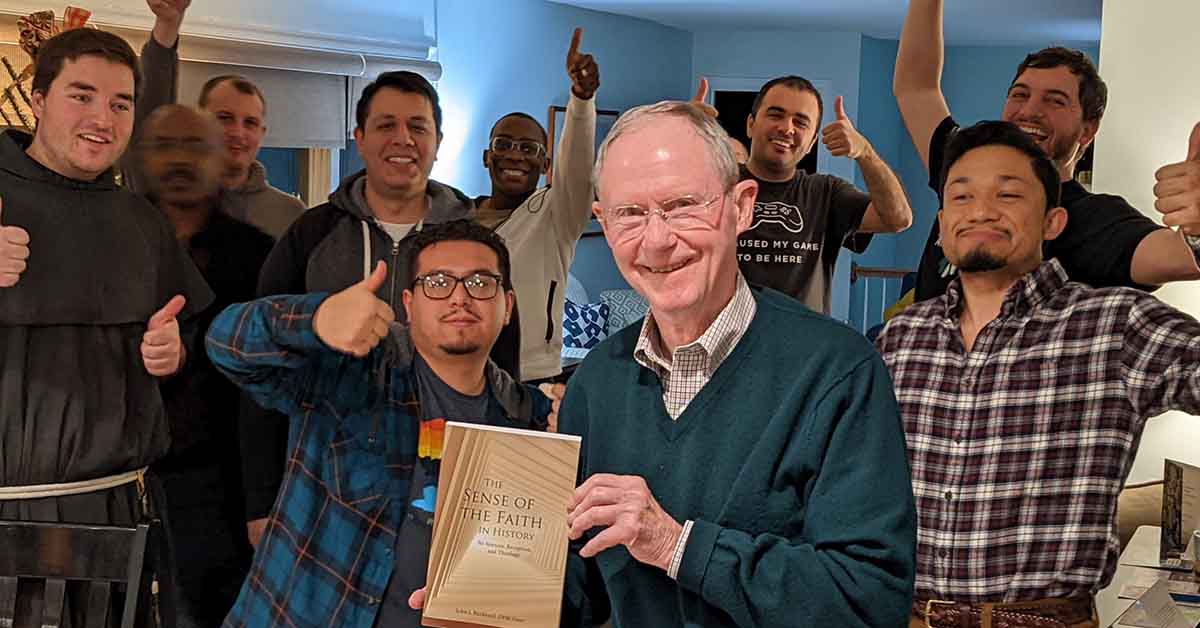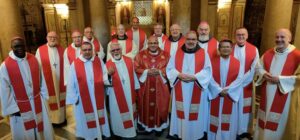The ‘Nones’: Why They’ve Abandoned the Church, And How to Invite Them Back
In Conversation with Friar John Burkhard, Part Three
In his new book, The Sense of the Faith in History: Its Sources, Reception, and Theology, Friar John Burkhard examines what the Catholic Church might look like if it took this teaching to heart. Locating its historical roots and its emergence at Vatican II, Friar John challenges the hierarchical church to invite all the faithful to rightfully participate in the prophetic ministry of the whole church, closely allied with Pope Francis’s call for a more synodal church.
For 18 years, Friar John taught Conventual Franciscan friars, diocesan seminarians, and lay women and men at St. Anthony-on-Hudson Seminary (Rensselaer, New York). After the seminary closed in 1988, he taught for a period of time at St. Peter’s Regional Seminary in Cape Coast, Ghana. Returning from Africa, Friar John joined the faculty at Washington Theological Union, where he remained for 22 years. During summers in the 1990s and 2000s, he taught at St. John’s University (Collegeville, Minnesota), and in a lay education ministry program in the Archdiocese of Washington, DC, called Education for Parish Service, sponsored by the Sisters of Notre Dame de Namur. He retired from teaching in 2012 and now dedicates his time to research, writing, and translating.
Here is part three of our conversation:
From your experience as a teacher and a Franciscan, what is your view of the growth of the so-called ‘nones’ (young and older) and are there ways to engage them?
There are probably as many reasons for a Christian believer to join the ranks of the ‘nones’ as there are individuals. I don’t think that the decision to leave one’s religious affiliation behind can be generalized. Nevertheless, I do believe that the institutional church has facilitated such a painful decision by concentrating too much on the church as an institution with rules and regulations that must be followed unthinkingly.
The church needs to recover the warmth and richness of the biblical image of the People of God. The church is not primarily a sociological phenomenon. It is people called together by God to realize their humanity by living according to the idea of the kingdom of God. The church must create space for individuals to find themselves. The pattern of being a disciple of Jesus is infinitely adaptable.
Secondly, the human person can only become who she or he is by a process that listens deeply to the longings of the individual and helps that person truly become a friend of God. The time when the official church saw itself as an all-knowing tutor is over and gone. The church is called to be a fellow ‘wayfarer.’
Here, too, the teaching of Vatican II that the church is a “pilgrim people” needs to be dusted off and reintroduced into the conversation with our contemporaries. Everybody wants to feel responsible. Everyone wants to be accompanied lovingly.
What would you say to a young person who expresses a desire to deepen his or her faith?
Get in touch with your feelings, your longings, your dreams, and aspirations. God has placed these yearnings and questions within you. Be honest with yourself and your honesty will bond you with God.
What would you say to a young man who expresses interest in becoming a Conventual Franciscan?
If you want to live for something beyond yourself, and if you have a rudimentary prayer life, read a life of St. Francis of Assisi (book form or something online) or meet a Conventual Franciscan friar in person and ask him about St. Francis. See where it leads you.

Liturgical Press: https://litpress.org/Products/6689/The-Sense-of-the-Faith-in-History
Amazon: https://www.amazon.com/Sense-Faith-History-Reception-Theology/dp/0814666892
Barnes and Noble: https://www.barnesandnoble.com/w/the-sense-of-the-faith-in-history-john-j-burkhard/1139651866



